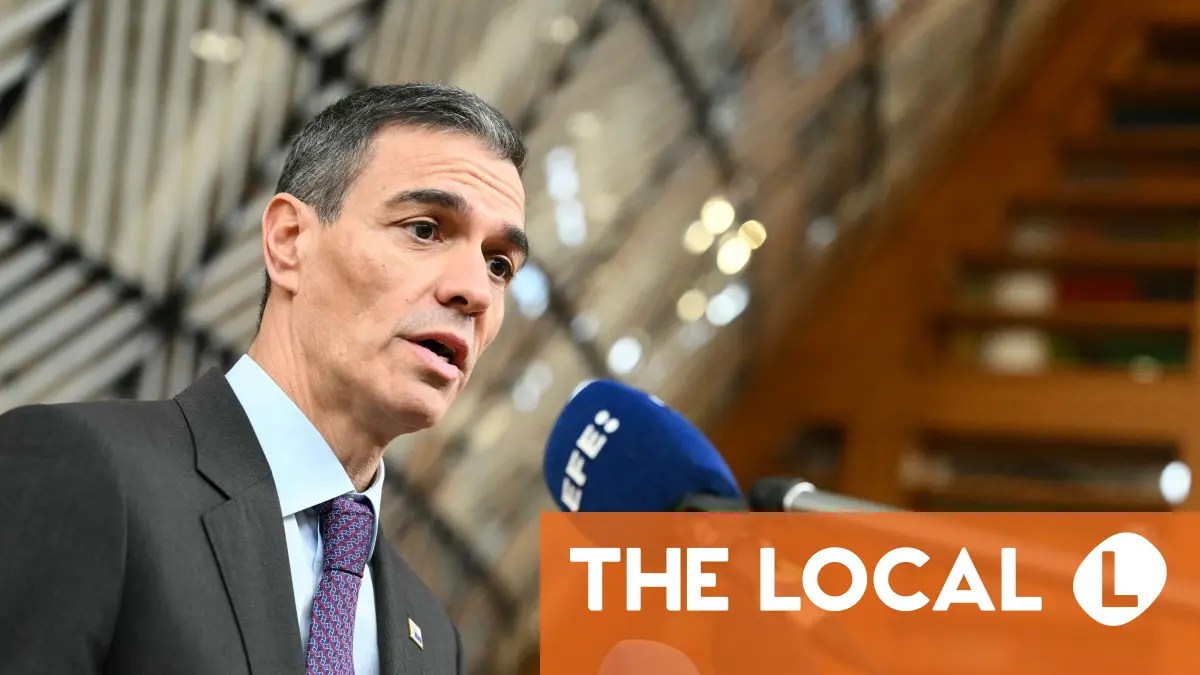Shorouk Express
All this time analysts have been wondering whether Vladimir Putin will compel his “younger brother” to commit his troops to the war. It has not happened yet, thank God.
Why has the Kremlin not tried to twist arms? Perhaps they have had to reckon with the fact that Alexsander Lukashenka does not have many well-trained troops (his special forces consist of only a few thousand men) – they would not make a difference. And sending them to the front might well unsettle Belarusian “stability”.
Lukashenka has probably been able to convince Moscow that Belarus is better used as a supplier of goods for military and civilian purposes at a time of sanctions. And as a country that can arrange troop manoeuvres and so force Ukraine to divert part of its armed forces.
It is perfectly possible to assume that in private conversations Putin has been told by his younger brother of the unwillingness of the Belarusians to go to war against the Ukrainians (something that is very clearly shown by opinion polls). If soldiers were actually sent into battle they could well surrender and go over to the other side. And the whole country would flare up if convoys loaded with corpses begin to arrive.
Interesting article?
It was made possible by Voxeurop’s community. High-quality reporting and translation comes at a cost. To continue producing independent journalism, we need your support.
Subscribe or Donate
Whatever the truth might be, Lukashenka now holds a powerful trump card in his hand: he is positioning himself as a wise, strong guarantor of a peaceful sky over the heads of the Belarusian people. State propaganda drums into their heads that if the “nationalist fighters” had won in 2020 the country would already be at war. This, as independent opinion polls have shown, works on part of the electorate. Especially when most ordinary citizens are cut off from mass media resources that are not favourable to the authorities.

The co-aggressor is trying to sit on two chairs
At the same time the ruler of Belarus is trying to sit on two chairs. On the one hand he has to demonstrate that he continues to be Moscow’s faithful ally in order to receive his carrots. The war has opened up an opportunity for the Belarusian economy to occupy new niches in a Russian market that suffers from sanctions, and to be able to sell sanctioned goods successfully on to Russia’s voracious military-industrial complex. This situation, however, is unstable, and the turbulence in the region as a whole is of course a source of tension for Minsk.
On the other hand, it is precisely for this reason that Lukashenka wants to play the role of a dove of peace and so prepare for himself a soft landing whatever the outcome of the war. He has even restrained his propagandists slightly because they have been abusing Ukraine too much. He reminds his underlings time after time, “we will sooner or later have to restore our relations with the Ukrainians”. He even draws up plans for participating in the post-war reconstruction of the neighbouring country, something that has drawn out the sarcasm of Ukrainian commentators.
It has to be said that the war has worsened the attitude of Ukrainians not only to Lukashenka and his regime, but also to Belarusians as a whole. To some extent their reputation has been saved by the Kastus Kalinouski Regiment, a fighting force made up of Belarusian volunteers.
The ice is beginning to move thanks also to the efforts of Belarusian oppositionists, volunteers, experts and media outside Belarus, all seeking to show that the Lukashenka regime and the Belarusian people are not the same.
Kyiv, however, continues to see no particular need to broaden co-operation with the Belarusian democratic forces or to arrange a meeting between Ukrainian president Volodymyr Zelensky and the president of the Coordination Council of Belarus, Sviatlana Tsikhanouskaya; it takes a sceptical view of the Belarusian political emigration’s potential.
Any seat at the talks on Ukraine will do for Lukashenka
Lukashenka clearly wants to secure himself a place at any eventual peace talks on Ukraine. He has recently let slip his desire on several occasions. He was annoyed by his political opponents’ attempts to deprive him of the opportunity, “to remove him from the arena of political activity” by obtaining an order for his arrest from the International Criminal Court in The Hague.
The ruler of Belarus is probably stressed out by the prospect of the West (primarily, the USA) coming to some kind of understanding with Moscow about the situation in the region, about reaching a new kind of Yalta agreement and ignoring Lukashenka’s interests; what, they would say, is the point of trying to do deals with a vassal state?
For speakers from the democratic forces of Belarus, however, it has become an article of faith to say that the fate of Belarus is being decided in Ukraine; if Ukraine is victorious and Russia is seriously weakened, a window of opportunity for change will open up for us.
Donald Trump’s victory in the elections gave rise to the fear that he would force Zelensky to conclude a peace on terms that were unfavourable to Kyiv. Lukashenka approached the issue from the opposite direction: he began to heap praise on the American president-elect in the hope that he would be able to cook up some deals with him.
However, for Trump the question of Belarus will obviously not be at the centre of his attention. As a whole, the West is inclined to regard Lukashenka as a puppet of the Kremlin. Why seat a puppet at the table for peace talks?
Lukashenka’s role in all this to a large extent depends on whether Trump is able to conclude a deal with the Kremlin and what the conditions are.
The chances of representatives of the Belarusian democratic forces being present at talks on Ukraine are still slim.
The Kalinouski Regiment marching on Minsk – at the moment a pipe dream
The armed revolt scenario for regime change has gained in popularity among opponents of Lukashenka ever since the suppression of the peaceful uprising in 2020. Great hopes have been placed in particular on the Kalinouski Regiment. There are romantics who have dreamt of the regiment’s victorious march on Minsk.
At present such a scenario is not realistic. The main thing is for Ukraine to hold its front line. If it is compelled to conclude an armistice along the line of military confrontation, a deep internal political crisis is likely in the country: what has all the blood been shed for? Put bluntly, Belarus is not going to be an issue.
Even if we can imagine that a miracle has occurred and Ukraine has been able to restore the frontiers of 1991 (even the wildest fantasists do not dream of Ukrainian tanks parading on Red Square), it does not mean an end to the war. The Kremlin will never be reconciled to such a situation.
Kyiv will have headaches aplenty, even without thinking of liberating Belarus from dictatorship. As for the Kalinouski Regiment – it is a military formation under the control of the Main Directorate of Intelligence of the Ministry of Defence of Ukraine.
Naturally, therefore, the regiment is and will continue to be used in the interests of Ukraine (although this is not to cast doubt on the Belarusian patriotism of its soldiers). We can see how Kyiv, in the name of these interests, strives not to annoy Lukashenka and maintains behind-the-scenes contacts with him.
In order to detach themselves from the Kalinouski Regiment, Belarusians with political ambitions and military experience have formed a movement called “Kalinoutsy”, but so far they haven’t shown themselves in any way.
Harsh reality has to be faced, whatever happens: for Washington as well as for the European Union, the sovereignty and democratisation of Belarus are not matters of priority, and that is putting it mildly
Right now, there has been no miraculous unification of the democratic forces around some kind of strategy for the liberation of Belarus. The appointment of Vadim Kabanchuk, former deputy commander of the Kalinouski Regiment, to Tsikhanouskaya’s cabinet has not yielded any tangible results in this direction.
Of course, if Lukashenka’s authority were to suffer a severe crisis, the armed element of a regime change could play a very important, even decisive role. For this to happen, however, a whole range of conditions will have to be met both inside the country and around it.
Whatever happens, the decisive factor is seen as the weakening of Russia. And this in turn depends largely on the extent to which the West will support Ukraine.
A number of analysts reckon that Washington is not interested in the excessive weakening of Russia, let alone its complete collapse. Among other things there is the fear that Russia’s nuclear weapons could fall into the hands of goodness knows who, and the hope that Moscow can be used in the struggle with China.
Trump’s coming to power strengthens the uncertainty. The American policy pendulum could swing in any direction.
Dictatorship is a problem for the Belarusians to sort out themselves
Harsh reality has to be faced, whatever happens: for Washington as well as for the European Union, the sovereignty and democratisation of Belarus are not matters of priority, and that is putting it mildly. Sure, western politicians may express their deep concern, but in fact many of them have already surrendered Belarus to the Empire in their thoughts, they have fenced themselves off with an iron curtain.
As we can see, the West has not exactly hurried to Ukraine’s aid. It is even less likely that American marines will die for Belarus. There’s nothing to get upset about here: after all, blood is thicker than water.
It must be remembered that for the Kremlin Belarus is a vitally important strategic bridgehead. It is extremely convenient to be able to threaten Ukraine and the NATO countries from the “Belarusian balcony”. It’s no coincidence that Putin launched his “blitzkrieg” against Kyiv in February 2022 from Belarus, and later stationed tactical nuclear weapons there.
Apart from anything else, the presence of these tactical nuclear weapons in Belarus is a convenient excuse for Russia to invade, should a “colour revolution” suddenly break out there: “we can’t let them fall into the hands of extremists, can we?”
Lukashenka has for many years been scaring Moscow with the prospect of what would happen if Russia’s enemies were to be victorious: there would be NATO missiles very close to Smolensk. By playing on their imperial instincts, he has had some success at it too. The Russian leadership regards regime change in Belarus and the loss of a satellite state as an existential threat.
In just this way the fear of ‘losing Ukraine’, coupled with anti-NATO phobias, pushed the Kremlin into adopting an aggressive policy towards the country.
The Empire has dealt a heavy blow to Ukraine, and Belarus finds itself in the imperial trap. Evil is now on the rise.
All those who long for the defeat of the aggressor and a window of change for Belarus are hardly likely to be comforted by primitive, up cheering slogans. More appropriate at the present moment are the words of British Prime Minister Winston Churchill, uttered in 1940 against a background of Nazi expansion: “I have nothing to offer but blood, toil, tears and sweat”.
Back then, in 1940, many people must have felt that Hitler could not be stopped, but in the end Great Britain and its allies were victorious.
Today the future of Belarus is to a significant extent hidden by the fog of the Russo-Ukrainian war.
It is important to bear in mind that in any case “No saviour from on high delivers”. There may one day be more or less favourable external conditions (not, of course, tomorrow), but in one way or another the problem of dictatorship is one that the Belarusians will have to sort out for themselves.
👉 Original article on Pozirk













